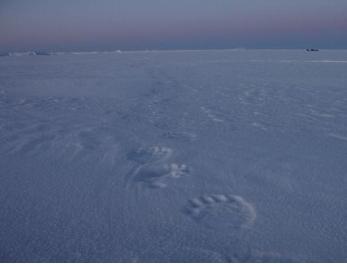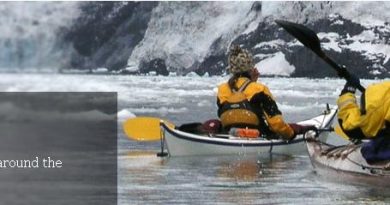VIDEO: Is tourism taming polar bears?
 That’s the question some northern communities along the west coast of Canada’s Hudson Bay are starting to ask.
That’s the question some northern communities along the west coast of Canada’s Hudson Bay are starting to ask.
Churchill, Canada, a northern community of approximately 900 people in Manitoba province, has long been touted as the polar bear capital of the world. Travellers from all over the world come here to ride in what’s known as tundra buggies for a chance to see and photograph polar bears up close.
But locals and conservation officers say the bears are increasingly showing up in town. Some are wondering if the tourism industry has made the bears less afraid of people.
In this video from CBC reporter Reg Sherren, we hear from Churchill residents and Inuit hunters from the Hudson Bay community of Arviat who’ve had near misses with polar bears everywhere from their children’s schools to their own homes.
To watch, click here.
Write to Eilís Quinn at eilis.quinn(at)cbc.ca



